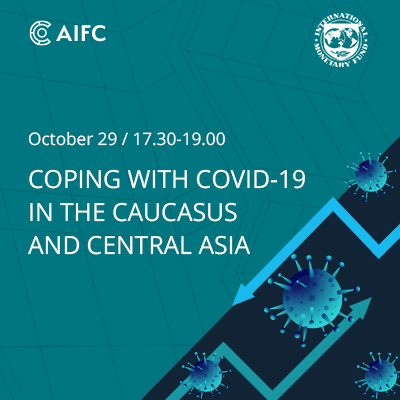
In response to the COVID-19 pandemic, the countries of the Caucasus and Central Asia (CCA) region took swift and stringent measures to mitigate the spread and impact of the virus. This came at a steep economic cost, as the region faces a “double-whammy” economic impact from lockdowns and either a sharp decline in oil income for oil exporters, or from lower remittances and tourism income for many oil importers. Furthermore, the global recovery remains uncertain, uneven, and prone to setbacks. There is also sizeable uncertainty surrounding the evolution of the pandemic, the outlook for contact-intensive sectors, and financial market sentiment.
While massive global policy support avoided worse outcomes, policymakers are increasingly faced with the difficult trade-offs between implementing measures to support near-term growth and avoiding a further buildup of debt. Containing the health crisis and cushioning income losses remain urgent priorities. As countries reopen, policymakers must lay the groundwork for recovery to rebuild stronger, more resilient, and more inclusive economies.
The IMF’s 2020-21 Regional Economic Outlook (REO), which was the focus of this discussion, explores these developments and the challenges ahead for the Caucasus and Central Asia region, including the threat of economic scarring, the fiscal challenges the crisis has created, financial stability concerns, as well as policy priorities to build a stronger recovery.
Moderator:
Jack Farchy, Bloomberg Reporter
Opening Remarks:
Baur Bektemirov, Chief Economist, AIFC
Panellists:
Jihad Azour, Director, Middle East and Central Asia Department, IMF
Martin Galstyan, Chairman, Central Bank of Armenia
Aziza Umarova, CEO, SmartGov Consulting
